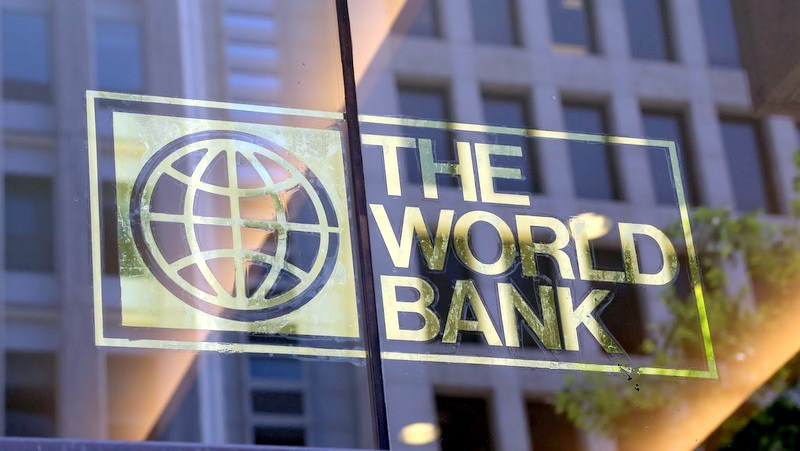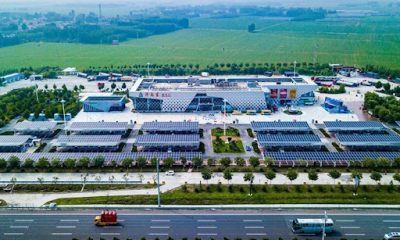Business
Oil prices rise on OPEC+ cuts, record China imports

Oil climbed on Monday after major producers agreed to extend a deal on record output cuts to the end of July and as China’s crude imports hit an all-time high in May.
Brent crude was up 51 cents, or 1.2 per cent, at $42.81 per barrel, by 0628 GMT, while U.S. West Texas Intermediate (WTI) crude rose 32 cents, or 0.8 per cent, to $39.87 a barrel.
Both hit their highest since March 6 earlier in the session, at $43.41 and $40.44, respectively.
Brent has nearly doubled since the Organisation of the Petroleum Exporting Countries (OPEC), Russia and allies, collectively known as OPEC+, agreed in April to cut supply by 9.7 million barrels per day (bpd) during May-June to prop up prices that collapsed due to the coronavirus crisis.
On Saturday, OPEC+ agreed to extend the deal to withdraw almost 10 per cent of global supplies from the market by a third month to end-July.
Following the extension, top exporter Saudi Arabia hiked its monthly crude prices for July.
But Howie Lee, Economist at Singapore bank OCBC, noted that the latest deal had fallen short of market hopes for a three-month extension of output cuts.
He said both benchmarks would require stronger bullish factors to propel prices back to where they were before March 6, when they crashed after OPEC and Russia initially failed to reach an agreement on supply cuts.
“It’s a big gap there; you need a strong conviction to go from $43 to pre-crash levels,’’ Lee said, referring to Brent being above $50 before the March crash.
Low prices have drawn Chinese buyers to boost imports.
Purchases by the world’s largest crude importer rose to an all-time high of 11.3 million bpd in May.
The OPEC+ move to extend cuts to July is, however, expected to lead to a supply deficit by October, aiding prices in the longer run, OCBC’s Lee added.
Market participants are now eyeing compliance among OPEC members such as Iraq and Nigeria, which exceeded production quotas in May and June, for trading cues, analysts said.
Libya’s supply could also rise soon as two major oilfields have reopened after months of a blockade that shut off most of the country’s production.
“The potential return of Libyan output could also cause considerable challenges for the OPEC leadership,’’ said Helima Croft, Head of Global Commodity Strategy at RBC Capital Markets.
Even as oil prices recovered, they are still well below the costs of most U.S. shale producers, leading to shutdowns, layoffs and cost-cutting in the world’s largest producer.
The number of operating U.S. oil and natural gas rigs fell to a record low for a fifth week in a row in the week to June 5, according to data from Baker Hughes Co.
Nearly 30 per cent of the U.S. offshore oil output was also shut on Friday as tropical storm Cristobal entered the Gulf of Mexico.
The storm weakened to a tropical depression on Monday morning.
Higher oil prices could invite the reinstatement of supply, notably the U.S. shale, that was planned to be shut-in in June and July, BNP Paribas’ Harry Tchilingurian said.
“OPEC+ faces a Catch-22 situation,’’ he said.
“The resumption of output … may moderate the pace of rebalancing of the oil market.’’
Business
Shehu Sani Criticizes World Bank Over Nigeria’s Economic Outlook

Former Kaduna Central Senator Shehu Sani has criticized the World Bank for worsening Nigeria’s economic difficulties. In a post shared on X, Sani accused the institution of projecting that Nigeria’s hardship would extend for another 15 years before the country could reach a better economic future. He questioned how many Nigerians would be left to enjoy that future, and how many African nations the World Bank has successfully helped to prosperity.
Sani’s remarks follow the World Bank’s latest *Africa’s Pulse* report, which forecasts that the Nigerian Naira will be among the worst-performing currencies in Sub-Saharan Africa by August 2024. The report placed the Naira’s decline alongside that of the Ethiopian Birr and South Sudanese Pound.
Business
HIG: Building Trust and Driving Innovation in Nigeria’s Insurance Market

Heirs Insurance Group (HIG) recently announced impressive financial results for the 2023 fiscal year, marking significant growth across all key metrics. The Group’s Gross Written Premium (GWP) surged by 59.3%, from N19.9 billion in 2022 to N31.7 billion in 2023. This remarkable performance underscores HIG’s resilience and operational efficiency, further solidifying its position as one of Nigeria’s fastest-growing insurance firms.
Heirs General Insurance (HGI) saw a 77% increase in GWP, reaching N12 billion in 2023. HGI’s profit before tax (PBT) also rose by 203%, reflecting the company’s effective cost management. Similarly, Heirs Life Assurance (HLA) reported a 71% GWP increase and a staggering 395% rise in PBT. Both companies have demonstrated a strong commitment to customer satisfaction, disbursing billions in claims.
Beyond financial success, HIG actively engages in corporate social responsibility (CSR) projects, contributing over N100 million to education, community development, and financial literacy. With plans for future expansion and innovation, HIG is poised to remain a key player in Nigeria’s evolving insurance market.
Business
Wike Urges Nigerians to Pay Taxes for Improved Social Services

Federal Capital Territory (FCT) Minister, Nyesom Wike, has called on Nigerians to fulfill their tax obligations, emphasizing that government revenue is essential for delivering social services. Wike made this appeal during the inaugural Abuja Business and Investment Summit, held in Abuja on Wednesday.
Speaking on the summit’s theme, “Optimising Investment Through Partnerships,” Wike stressed the importance of collaboration to generate investment opportunities. He dismissed the misconception that the government does not need revenue, explaining that taxes are crucial for funding public services.
Wike reiterated that both investors and the government must benefit from such partnerships, ensuring that both parties “go home smiling” through a fair exchange of services and taxes.
-

 Business14 hours ago
Business14 hours agoOkpella Monarch: Obaseki Ratified Kingmakers Decision, End 5years leadership Vacuum
-

 Banking10 hours ago
Banking10 hours agoFree Food Saga: Akpabio quoted out of context-CSO
-

 Foreign15 hours ago
Foreign15 hours agoSci-tech innovation fuels China’s high-quality development
-

 Entertainment7 hours ago
Entertainment7 hours agoDavido Declares ‘Timeless’ His Best Album
-

 Entertainment7 hours ago
Entertainment7 hours ago‘Adire’ Secures Four Nominations at the Best of Nollywood Awards
-

 Business7 hours ago
Business7 hours agoWike Urges Nigerians to Pay Taxes for Improved Social Services
-

 Foreign9 hours ago
Foreign9 hours agoQinling Mountains better safeguarded with comprehensive digital platform
-

 Foreign9 hours ago
Foreign9 hours agoExpressway service station in Shandong achieves carbon neutrality






